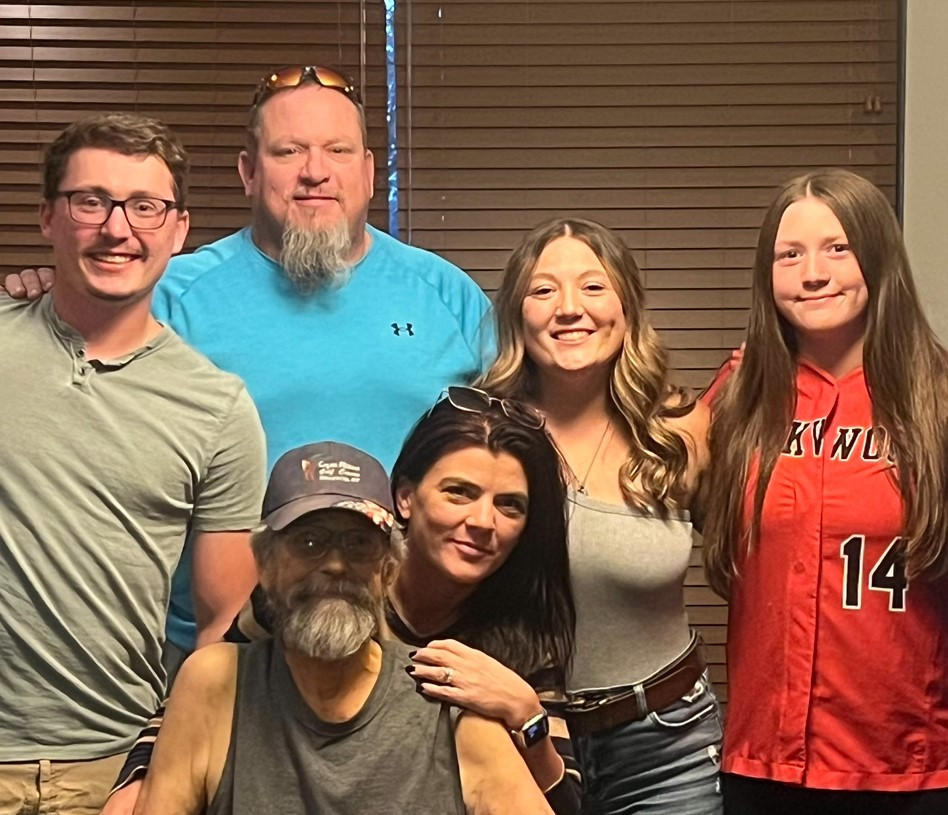20250714_183743412_iOS
When establishing care with her new primary care provider, Tammy Von Feldt began the conversation discussing her family medical history and her past treatment for early-stage cervical cancer at age 35.
“We were talking about family history. I do have a lot of cancer on both sides of my mom and dad’s families,” Von Feldt said.
After the initial appointment, Jodi Gilligan, nurse practitioner at the Intermountain Health Lockwood Clinic, recommended that Von Feldt undergo genetic testing due to her family’s history of cancer. She also scheduled Von Feldt for the recommended routine colonoscopy and mammogram screenings for breast and colon cancer.
Before the results of the genetic testing were available, Von Feldt’s colonoscopy revealed that she had early-stage colon cancer and would need surgery. In consultation with her surgeon, she opted to wait until they had the results of the testing because that could impact the treatment plan.
Those results were eye-opening. She tested positive for Lynch syndrome, a genetic condition that significantly increases the risk of various cancers, including colon, endometrial and ovarian.
Lynch syndrome is caused by mutations in mismatch repair genes, which are responsible for fixing errors in DNA replication. Individuals with Lynch syndrome have a higher likelihood of developing cancer at a younger age and may require more frequent screenings to catch cancer early when treatment is most effective.
This discovery prompted her surgeon to recommend the removal of her ovaries during her colon surgery as a preventative measure. The surgery was a success, and Von Feldt needed no additional treatment for the colon cancer.

Jodi Gilligan, NP
“Tammy’s case reinforces how essential it is to talk with your provider to get a good family medical history as well as discuss the need for preventative screenings,” said Gilligan.
Von Feldt’s diagnosis had a ripple effect on her family. Her father, who had a history of colon cancer and at the time was being treated for esophageal cancer, also decided to undergo the testing for Lynch syndrome and tested positive. This led to two of Von Feldt’s adult children also undergoing the testing.
“Two out of three of my kids have now tested positive for Lynch syndrome, and they’re now having to have screenings and preventative care that I had,” Von Feldt said.
Because of his increased risk and family history, Von Feldt’s son had his first screening colonoscopy at age 24. While surprising, her children have taken their diagnosis with Lynch syndrome in stride.
“My son said ‘it is what it is’. I think they’re probably happy that they know they have it so they can make sure they are getting that preventative care they need,” Von Feldt said. “It was eye opening that my kids didn’t know our family medical history as well as I did.”
Reflecting on her experience over the last year, she feels fortunate that she was able to catch both of her cancers at an early stage and now has the knowledge to share with her family. Now more than ever, she is an advocate for preventative and proactive care, especially watching her father battle cancer several times and be at his side during his passing last year.
“I think the hardest part of last year for me was my dad. His last bout was pretty tough,” she said. His struggle and eventual loss underscored the importance of early detection and preventative care for Von Feldt and her family.
“Preventative care is very important. If you know that there’s cancer on either side of the family, talk to your provider and maybe get testing done,” Von Feldt said.
Her proactive approach to her health has not only helped her manage her own cancer diagnoses but has also provided her family with crucial information to understand their own health and risks. It is a powerful reminder of the value of understanding family medical history and having open discussions with your primary care provider.
“It is essential when you meet with a new provider or if family history has changed to share that information,” said Gilligan. “Also if you are having new symptoms, no matter how small, it is important to talk with your provider. Tammy’s story is a great example of getting a thorough, current history, making an appropriate genetic testing referral, as well as doing preventative screenings on time. With the knowledge and testing, her family can have a prepared plan to screen appropriately and be in tune with what to look for to report any concerns.”
‘;
